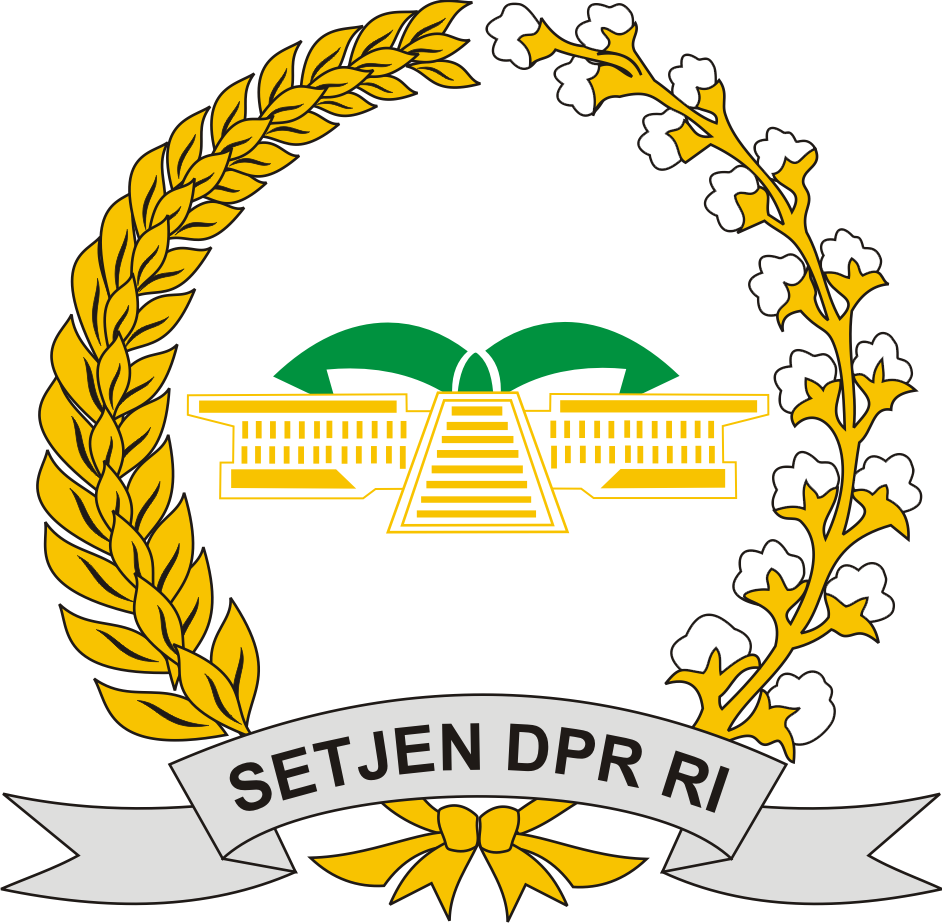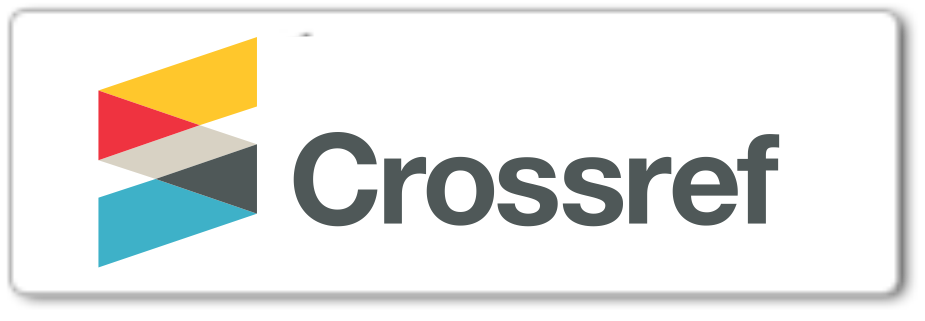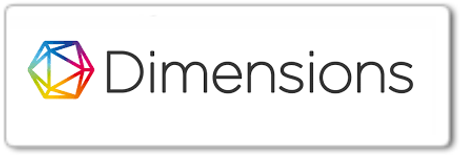Quo Vadis Undang-Undang Hak Cipta Indonesia: Perbandingan Konsep Ciptaan Artificial Intelligence di Beberapa Negara (Quo Vadis Indonesian Copyright Law: Comparison of Artificial Intelligence Creation Concepts in Several Countries)
Abstract
The use of artificial intelligence (AI) systems in production are expected in this era of sophisticated technology. However, there are deep concerns that AI technology will run out of control. With advanced technology, it was only a matter of time these systems began to produce amazing inventions without human intervention. This raises questions regarding intellectual property rights because it is not only disrupting the concept of copyright but also leads to questions related to the relevance of the Copyright Law, which, however, is considered lagging in responding to this development of AI. Through a conceptual approach and using normative, doctrinal legal research methods, and comparative studies, as well as using qualitative analysis techniques, this article argues that a conceptualization and redefinition of the regulation and legal framework related to copyright is needed as well as presenting social and legal tools to control the functions and outcomes of AI system. The recommendation in this article, the Government, should be aware of the great urgency of providing incentives needed by programmers and AI owners to stimulate future development and investment in AI. To accommodate AI-generated works, the Government needs to redesign the Indonesian Copyright Law to accommodate copyright issues, moral and economic rights, and the protection period for AI-created works; and consider adopting the use of the work made for hire concept.
Abstrak
Penggunaan sistem artificial intelligence (AI) dalam produksi merupakan hal biasa di era teknologi yang serba canggih. Namun, ada keprihatinan yang mendalam bahwa teknologi AI akan menjadi tidak terkendali. Dengan teknologi canggih, hanya masalah waktu sistem ini mulai menghasilkan penemuan yang luar biasa tanpa campur tangan manusia. Hal ini menimbulkan pertanyaan terkait hak kekayaan intelektual karena tidak hanya mendisrupsi konsep hak cipta, tetapi juga mengarah pada munculnya pertanyaan terkait relevansi UU Hak Cipta yang bagaimanapun dinilai tertinggal dalam merespon perkembangan AI ini. Melalui pendekatan konseptual dan menggunakan metode penelitian hukum normatif, doktrinal, dan studi perbandingan, serta menggunakan teknik analisis kualitatif, artikel ini berpendapat bahwa dibutuhkan sebuah konseptualisasi dan redefinisi terhadap regulasi dan kerangka hukum terkait hak cipta serta menghadirkan alat sosial dan hukum untuk mengontrol fungsi dan hasil sistem AI. Saran dalam artikel ini, Pemerintah harus sadar akan urgensi besar pemberian insentif yang dibutuhkan oleh pemrogram dan pemilik AI untuk merangsang pengembangan dan investasi masa depan di bidang AI. Untuk mengakomodasi karya yang dihasilkan AI, Pemerintah perlu mendesain ulang UU Hak Cipta Indonesia agar mampu mengakomodasi masalah hak cipta, hak moral dan ekonomi, dan jangka waktu perlindungan terhadap karya kreasi AI; serta mempertimbangkan untuk mengadopsi penggunaan konsep work made for hire.
Keywords
Full Text:
PDFReferences
Jurnal
Andrini, Laurensia, “Redesigning Indonesia Copyright Act to Accommodate Autonomous Intelligent System: Status Quo and Room
for Improvement,” Asian Journal of Law and Economics, Vol. 9, No. 3, November, 2018.
Antons, C., 2000, Intellectual Property Law in Indonesia, Vol. 2, Kluwer Law International. Antons, Christoph, “Copyright Law Reform
and the Information Society in Indonesia,” Third Conference on European and Asian Intellectual Property Rights ‘New Paradigms
of Copyright Law in the Information Society, Vol. 3, No. 1, June 2014.
Haq, Hayyan Ul, “Creating Appropriate Legal Framework in the Utilization of Intellectual Property Products,” Journal of International
Commercial Law and Technology, Vol. 9, No. 2, April, 2014.
Kaminski, Margot E, “Authorship, Disrupted: AI Authors in Copyright and First Amendment Law,” U of Colorado Law Legal Studies Research Paper, Vol. 17, No. 26, Desember, 2017.
Kasap, Atilla, “Copyright and Creative Artificial Intelligence (AI) Systems: a Twenty-First Century Approach to Authorship of Al-Generated Works
in The United States,” Wake Forest Journal of Business and Intellectual Property Law, Vol. 19, No. 4, 2019.
Kusumawardani, Qur’ani Dewi, “Hukum Progresif dan Perkembangan Teknologi Kecerdasan Buatan,” Veritas et Justitia, Vol. 5, No. 1, Juni,
Kop, Mauritz, “AI & Intellectual Property: Towards an Articulated Public Domain,” SSRN Electronic Journal, Vol. 14, No. 2, 2019.
Levendowski, Amanda, “How Copyright Law Can Fix Artificial Intelligence’s Implicit Bias Problem,” Washington Law Review, Vol. 93, No. 1.
Mahardita, Yoga dan Kholis Roisah, “Optimizing the Authority of Indonesia Customs in Legal Protection of Intellectual Property Rights,”
dalam “Optimizing the Authority of Indonesia Customs in Legal Protection of Intellectual Property Rights,” 2018, Proceedings of the
st International Conference on Indonesian Legal Studies (ICILS 2018), dipresentasikan pada 1st International Conference on Indonesian Legal Studies (ICILS 2018), Semarang, Indonesia.
Margoni, Thomas, “Artificial Intelligence, Machine Learning and EU Copyright Law: Who Owns AI?,” Centre for Copyright and New Business Models in the Creative Economy Journal, Vol. 20, No. 1, 2018
Naqvi, Zack, “Artificial Intelligence, Copyright, and Copyright Infringement,” Marquette Intellectual Property Law Review, Vol. 24, No. 1, 2020.
Olivia, Denindah, “Intellectual Property Regimes to Protect Computer Software: Indonesia and the United States,” Legal Brief, Vol. 10, No.
, November, 2020.
Palace, Victor M, “What If Artificial Intelligence Wrote This? Artificial Intelligence and Copyright Law,” Florida Law Review, Artificial Intelligence and Copyright Law Vol. 71, No. 1, 2018.
Pearlman, Russ, “Recognizing Artificial Intelligence (AI) as Authors and Inventors Under U.S. Intellectual Property Law,” Richmond Journal of Law & Technology, Vol. 24, No. 2, 2018.
Ramalho, Ana, “Will Robots Rule the (Artistic) World? A Proposed Model for the Legal Status of Creations by Artificial Intelligence Systems,” Forthcoming in the Journal of Internet Law, 2017.
Ruipérez, C, E Gutiérrez, C Puente, dan J A Olivas, “New Challenges of Copyright Authorship in AI,” International Conference Artificial Intelligence (ICAI), Vol. 2, No. 1, 2017.
Scherer, Matthew U., “Regulating Artificial Intelligence Systems: Risks, Challenges, Competencies, and Strategies,” Harvard Journal of Law & Technology, Vol. 29, No. 2, 2016.
Scherer, Matthew U., “Regulating Artificial Intelligence Systems: Risks, Challenges, Competencies, and Strategies,” Harvard Journal of Law & Technology, Vol. 29, No. 2, 2016.
Schönberger, Daniel, “Deep Copyright: Up and Downstream Questions Related to Artificial Intelligence (AI) and Machine Learning (ML),” Zeitschrift für geistiges Eigentum, Vol. 10, No. 1, 2018.
Sturm, Bob L. T., Maria Iglesias, Oded Ben-Tal, Marius Miron, dan Emilia Gómez, “Artificial Intelligence and Music: Open Questions of Copyright Law and Engineering Praxis,” Arts, Vol. 8, No. 3, September, 2019.
Tripathi, Swapnil dan Chandni Ghatak, “Artificial Intelligence and Intellectual Property Law,” Christ University Law Journal, Vol. 7, No. 1,
Januari, 2018.
Yanisky-Ravid, Shlomit, “Generating Rembrandt: Artificial Intelligence, Copyright, and Accountability in The 3A Era—The Human-Like Authors are Already Here—a New Model,” Michigan State Law Review, Vol. 16,
No. 1, 2017.
Zatarain, Jesus Manuel Niebla, “The role of automated technology in the creation of copyright works: the challenges of artificial intelligence,” International Review of Law, Computers & Technology, Vol. 31, No. 1,
Januari, 2017.
Zibner, Jan, “Artfcial Intelligence: A Creatve Player in the Game of Copyright,” European Journal of Law and Technology, Vol. 10, No.
, 2019.
Buku
Abbott, Ryan, “Artificial intelligence, big data and intellectual property: protecting computer generated works in the United Kingdom,” dalam Aplin, Tanya, 2020, Research Handbook on Intellectual Property and Digital Technologies, Edward Elgar Publishing.
Dodigovic, Marina, 2005, Artificial intelligence in second language learning: raising error awareness, Second language acquisition 13,
Multilingual Matters, Buffalo, NY. EU Digital Copyright Law and the End-User, 2008, Spring Copyright Protection Legal Frameworker Berlin Heidelberg, Berlin, Heidelberg.
Fishman, Stephen, 2008, Public domain: how to find & use copyright-free writings, music, art & more, Nolo, Berkeley, CA.
Netanel, Neil, 2008, Copyright’s paradox, Oxford University Press, Oxford; New York.
McConville, Michael dan Wing Hong Chui (ed.), 2007, Research methods for law, Research methods for the arts and humanities, Edinburgh Unimelawan Press, Edinburgh.
Turing, Alan dan B. Jack Copeland, 2004, The essential Turing: seminal writings in computing, logic, philosophy, artificial intelligence, and artificial life, plus the secrets of Enigma, Clarendon Press ; Oxford University Press, Oxford: New York.

This work is licensed under a Creative Commons Attribution-NonCommercial-ShareAlike 4.0 International License.



.png)
1.jpg)



 Rahmadi Indra Tektona
Rahmadi Indra Tektona








